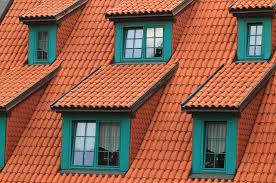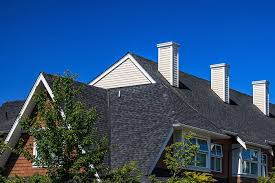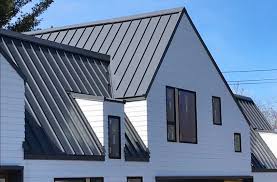What Is the Difference Between Commercial and Residential Roofing?
Although it may appear that a roof is just a roof, each roof is unique in its design, installation and life expectancy. There are key differences between commercial and residential roofing and the warranties that are available for the roof systems. All roofing requires proper installation by experienced roofing contractors and using quality materials. Not all roofing products are created equal. Therefore, it’s crucial to understand which products are right for your situation.

What is a Commercial Roof?
Commercial and residential roofs vary in design. A commercial roof tends to have a low slope or is entirely flat and much larger than a typical residential roof. Flat roofs tend to require more maintenance and involve repairs of larger spaces that are installed in sections. The typical design of a commercial roof has a few factors to consider such as the weight of equipment that is housed on the roof and the need to cover a larger area. Residential homes tend to have less worry where their design is concerned and tend to be easier to maintain, repair, and replace.

Residential roofing
Residential roofing is typically designed to cover houses or other smaller-scale buildings used as primary living spaces. Residential roofs are commonly pitched, meaning they have some degree of slope. The greater the slope, the more easily rain, snow, and debris can flow off the roof and be channeled away from the building. Residential roofs, by design, do have drainage but they aren’t built-in. Rather, they take the form of gutters which, while part of the roof, is still separate from the entire structure and can be changed as you see fit. Asphalt shingles are the most popular material for covering residential roofs in Winnipeg, but there is a wide variety of other materials that are also commonly used, including composite shingles, tile, slate, wood shakes, and metal. Residential properties usually have mid to high pitches and this means the “classic” roofing materials.

The Main Purpose Of Roofs
One might argue that the primary function of any roofing is to shelter the people and items inside the building from the rain and other elements of the weather. It also helps by using rolled roofing installation as an example to keep your home warm or cool. Aside from that, roofs also add to the value of a home, and this is why homeowners have a plethora of options to choose from when selecting a roof for their place. Having an attractive and durable roof can make your home look aesthetically pleasing and make it desirable to potential buyers, something that can help it get sold fast. The mentioned things underline the main purposes of a roof in a residential building but what about the commercial counterparts? Things get different in this area because commercial roofs are mostly above the line of sight and thus there is very minimal concern over the aesthetic value. You will have to get on the roof to check out how it appears or even be on top of another building that is taller than the one you are viewing for you to see. The main purpose of a commercial roof is to serve the main function, and there is no consideration for beautiful colors as they won’t matter. However, this does not limit the options available for commercial roofs as one can select from a couple based on their preferences and budget.
Structural Design
The structural nature of both residential and commercial roofs is very different, and you cannot use the same designs for both. Most commercial roofs are normally flat or have a very gentle tilt. The main reason why the models are done that way is for practicality. Most of the commercial buildings are extensive and opting for other designs other than the flat ones can be costly since they will take up a lot of roofing material. Aside from that, commercial building roofs also serve other functions apart from just protecting the people and items inside the building. Some tall commercial buildings in large cities have helipads that are used by people who need to move fast and avoid heavy traffic in the streets. Other commercial buildings make use of massive solar arrays and other equipment such as water heaters and air conditioning equipment that can only be accommodated on the rooftop owing to their huge size.
Residential roofs are mostly sloppy, and the basis of their designs depend on what the owner wants. In a nutshell, one has several options when designing a residential roof and they could still go with the flat-roofed option.
Maintenance
All types of roofs need attention, but the amount differs in both commercial and residential roofing. One major limitation of the flat roofs seen on commercial buildings is that they are prone to water pooling when it rains heavily. In that accord, one must ensure that the roof is waterproof to avoid cases of water seeping in through the cement cracks. Waterproofing is an expensive thing especially when being done on a relatively large roof. It also needs to be repeatedly done after several years, and this makes the cost of maintaining a flat roof relatively high. Looking at the residential roofs, it is evident that there is no risk of water pooling since most of them are sloppy. However, one should install gutters to help direct the water flowing off the roof so that it cannot damage the base of the home. Building owners in areas that have a lot of trees need to clear the debris of their roofs from time to time as they can lead to ice damming and blockages. This is particularly applicable to commercial flat roofs that need to be clear of any debris that might encourage pest infestations or help to accumulate water.
Commercial roofs require regular inspections from time to time. It is terrible to have a corporate business renting your premises being disrupted from going about their day to day business due to a roof leak. Preventive maintenance should be a priority for commercial buildings so that all kinds of problems can be identified before they scale up and become larger ones. If the roof has any electrical or mechanical equipment, the roof inspectors should take care not to interfere with them when conducting their checks as they could really affect the day to day operations of many businesses. Residential roofs equally need checks to ensure that they are in perfect condition, but it does not have to happen as regularly as it does with the commercial ones.